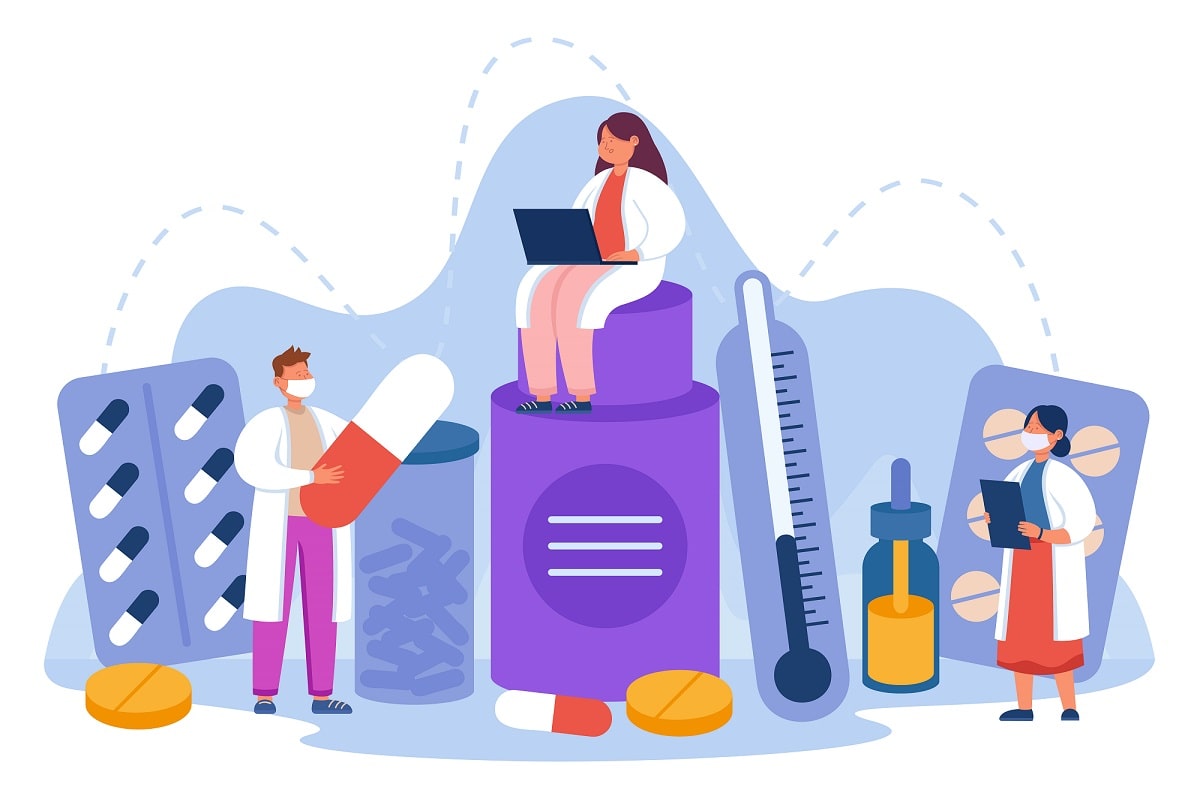In the din of everyday life, it is easy to miss the noises and voices that are occurring all around us. On the other hand, folks who are dealing with hearing loss may find that the stillness is lonely. Hearing aids are being increasingly recognized as indispensable gadgets that not only help people hear better but also considerably improve their overall quality of life. This article will discuss the significance of hearing aids by looking at their advantages, the results of untreated hearing loss, and the technical breakthroughs that have made hearing aids more efficient than ever before.
Getting Back in Touch with the World
Hearing aids' primary function is to amplify sounds, allowing those who suffer from hearing loss to hear more clearly than they would otherwise be able to. This fundamental function has significant ramifications for day-to-day life since it:
Facilitates Better Communication
The ability to communicate clearly is essential to the success of our relationships and the activities that make up our everyday lives. Hearing aids let persons distinguish speech, which enables them to take part in discussions, comprehend instructions, and interact socially without the stress of mishearing.
Increases One's Own Safety
It is essential for one's personal safety to possess the auditory capacity necessary to hear warnings, alarms, and traffic sounds. Hearing aids enable its wearers to be aware of their surroundings and so reduce the likelihood of being involved in an accident.
Improves One's State of Mind
Hearing loss is typically accompanied by social isolation, which can contribute to feelings of despair and anxiety. Hearing aids assist persons in maintaining social relationships, which are essential to one's mental health, by enhancing one's capacity to converse with others.
Facilitates Enjoyment
A lot of times, we don't put enough value on the little joys in life, like listening to music, watching movies, or hearing the laughter of the people we care about. Hearing devices are able to help restore these delights for those who have lost their hearing.
The Risks Involved with Leaving Hearing Loss Untreated
Ignoring hearing loss and, as a result, declining to use hearing aids might have negative implications, including the following:
Cognitive Decline
Numerous studies have demonstrated a connection between deteriorating hearing and mental impairment. The persistent mental stress of decoding noises can overburden the brain, which can further lead to cognitive deterioration. Isolation can also play a role in this process.
Relationship Difficulties
Hearing loss that is not addressed can put a strain on relationships because those who are affected by it may experience feelings of frustration or isolation as a result of the communication barrier it creates.
Deterioration in the Quality of Life
Hearing loss that is not addressed can, in the aggregate, result in a worse quality of life that is marked by social withdrawal, dissatisfaction, and wasted opportunities.
The Great Step Forward in Hearing Aid Technology
Hearing aids of today have seen considerable advancements in recent decades, making them both more effective and more readily available:
Individualization together with Accuracy
Hearing aids of today are able to be properly tailored to meet the specific hearing loss pattern of a person. They are able to enhance particular sound frequencies, so guaranteeing that speech is audible while keeping background noise to a bearable level.
Connectivity and integration are both important.
Hearing aids of today frequently come equipped with Bluetooth connection, which enables users to link their devices to mobile phones, TVs, and other electronic gadgets. This feature improves the overall quality of the user experience and makes communication even less clunky.
Discreet Design
The social stigma that comes along with wearing hearing aids has been tackled by designs that are both inventive and inconspicuous. The fact that many hearing aids are so small that they are almost unnoticeable has helped increase the number of individuals who use them without feeling self-conscious.
Reduced levels of feedback
The whistling noises that were frequent in early hearing aids have been significantly reduced thanks to advanced technology for feedback reduction. This enhances both the sound quality and the overall user experience.
Rechargeable Batteries
The incorporation of rechargeable batteries into hearing aids eliminates the need for the wearer to fuss with replacing the batteries on a regular basis, making the devices more user-friendly, particularly for senior citizens.
Making the Decision to Improve Your Hearing
Hearing aid use represents a conscious choice to take part in all aspects of life to the fullest extent possible. It is impossible to stress how important hearing aids are, whether it is for reasons related to enjoyment, safety, or even mental health and communication. It is essential for those who are experiencing hearing loss to consult with audiologists in order to receive guidance and help. Hearing aids and early intervention are two things that can help people with hearing loss have a life that is fuller and more connected to the world around them.
In conclusion, hearing aids are more than simply equipment; they are entryways to socialization, safety, mental health, and happiness. They bring people closer to the world around them by bridging the gap that hearing loss causes, which highlights the enormous significance of hearing aids in our everyday lives.
Getting Back in Touch with the World
Hearing aids' primary function is to amplify sounds, allowing those who suffer from hearing loss to hear more clearly than they would otherwise be able to. This fundamental function has significant ramifications for day-to-day life since it:
Facilitates Better Communication
The ability to communicate clearly is essential to the success of our relationships and the activities that make up our everyday lives. Hearing aids let persons distinguish speech, which enables them to take part in discussions, comprehend instructions, and interact socially without the stress of mishearing.
Increases One's Own Safety
It is essential for one's personal safety to possess the auditory capacity necessary to hear warnings, alarms, and traffic sounds. Hearing aids enable its wearers to be aware of their surroundings and so reduce the likelihood of being involved in an accident.
Improves One's State of Mind
Hearing loss is typically accompanied by social isolation, which can contribute to feelings of despair and anxiety. Hearing aids assist persons in maintaining social relationships, which are essential to one's mental health, by enhancing one's capacity to converse with others.
Facilitates Enjoyment
A lot of times, we don't put enough value on the little joys in life, like listening to music, watching movies, or hearing the laughter of the people we care about. Hearing devices are able to help restore these delights for those who have lost their hearing.
The Risks Involved with Leaving Hearing Loss Untreated
Ignoring hearing loss and, as a result, declining to use hearing aids might have negative implications, including the following:
Cognitive Decline
Numerous studies have demonstrated a connection between deteriorating hearing and mental impairment. The persistent mental stress of decoding noises can overburden the brain, which can further lead to cognitive deterioration. Isolation can also play a role in this process.
Relationship Difficulties
Hearing loss that is not addressed can put a strain on relationships because those who are affected by it may experience feelings of frustration or isolation as a result of the communication barrier it creates.
Deterioration in the Quality of Life
Hearing loss that is not addressed can, in the aggregate, result in a worse quality of life that is marked by social withdrawal, dissatisfaction, and wasted opportunities.
The Great Step Forward in Hearing Aid Technology
Hearing aids of today have seen considerable advancements in recent decades, making them both more effective and more readily available:
Individualization together with Accuracy
Hearing aids of today are able to be properly tailored to meet the specific hearing loss pattern of a person. They are able to enhance particular sound frequencies, so guaranteeing that speech is audible while keeping background noise to a bearable level.
Connectivity and integration are both important.
Hearing aids of today frequently come equipped with Bluetooth connection, which enables users to link their devices to mobile phones, TVs, and other electronic gadgets. This feature improves the overall quality of the user experience and makes communication even less clunky.
Discreet Design
The social stigma that comes along with wearing hearing aids has been tackled by designs that are both inventive and inconspicuous. The fact that many hearing aids are so small that they are almost unnoticeable has helped increase the number of individuals who use them without feeling self-conscious.
Reduced levels of feedback
The whistling noises that were frequent in early hearing aids have been significantly reduced thanks to advanced technology for feedback reduction. This enhances both the sound quality and the overall user experience.
Rechargeable Batteries
The incorporation of rechargeable batteries into hearing aids eliminates the need for the wearer to fuss with replacing the batteries on a regular basis, making the devices more user-friendly, particularly for senior citizens.
Making the Decision to Improve Your Hearing
Hearing aid use represents a conscious choice to take part in all aspects of life to the fullest extent possible. It is impossible to stress how important hearing aids are, whether it is for reasons related to enjoyment, safety, or even mental health and communication. It is essential for those who are experiencing hearing loss to consult with audiologists in order to receive guidance and help. Hearing aids and early intervention are two things that can help people with hearing loss have a life that is fuller and more connected to the world around them.
In conclusion, hearing aids are more than simply equipment; they are entryways to socialization, safety, mental health, and happiness. They bring people closer to the world around them by bridging the gap that hearing loss causes, which highlights the enormous significance of hearing aids in our everyday lives.


